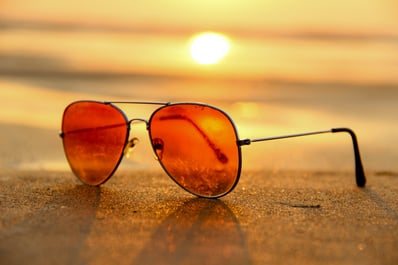 Summer has arrived and so have the heat waves.
Summer has arrived and so have the heat waves.
While it’s the best time of year to enjoy the great outdoors, it’s also important to remember the effect of high temperatures on the human body.
Knowing how to protect yourself and your family from summer hazards like extreme heat can save you a trip to the emergency room, or worse. Among all weather-related hazards, extreme heat waves are often the deadliest, according to Ready.gov.
Luckily, heat-related injuries and death are preventable.
By learning and spreading the word about extreme heat dangers and prevention measures, you can save potentially save a life.
Here’s a look at the basics of heat health:
What is Extreme Heat?
Extreme heat usually happens during the summertime when temperatures and humidity levels spike to higher than average levels. Muggy weather (think southwestern states) can make it feel much hotter.
Additionally, extreme heat may:
- Include days of high heat and humidity
- Hit temperatures above 90 degrees
- Occur suddenly
- Increase humidity levels along with the heat index
Why is Extreme Heat Dangerous?
Every year in the United States, around 600 people die from extreme heat conditions. People who suffer from heat-related issues have problems cooling down properly. This can lead to heat exhaustion or heat stroke, which can cause damage to the body’s organs.
Evaporation rates are slower in extreme heat and human bodies must work harder than normal to maintain normal temperatures. Hotter weather is more dangerous to children, elderly, overweight, and ill people.
Prevention Measures to Handle the Heat
If you ever find yourself in extreme heat situations, there are several preventative measures you can take to stay safe.
These may include:
- Drinking lots of fluids
- Wearing loose clothing
- Staying in the A/C during the hottest parts of the day
- Being aware of the heat index
- Never leaving any person or animal alone in hot cars
Also, while fans may seem to cool you down, there comes a point where it really doesn’t do much. Electric fans are not effective in 95 degrees or higher as the blades just move hot air around and don’t actually cool the body.
Heat-Related Conditions to Watch For This Summer
Heat cramps
Heat cramps are noticeable spasms, pain and/or cramps in the abdomen, arms, and calves. While these are the least serious of the heat-related conditions, heat cramps can be painful and should be treated.
Heat cramp information to know:
- Cramps are not typically dangerous
- Treat quickly to stop from developing into heat exhaustion
- Cramps are caused by an imbalance of electrolytes
When suffering from heat cramps:
- Drink sports beverages to replace electrolytes
- Move to a cooler location
- Remove excess clothing
- Rest
- Seek medical attention if it lasts longer than an hour
Heat exhaustion
This condition is more serious than heat cramps, but not as serious as heat stroke. Heat exhaustion can develop quickly.
Symptoms may include: Cool skin with goosebumps or heavy sweating, feeling faint, dizzy, or tired. Noticeable nausea, a change in heart rate, cramps, and a headache may indicate heat exhaustion. Untreated, it can lead to heat stroke which can be deadly.
When suffering from heat exhaustion:
- Move to a cool location
- Lie down and rest
- Loosen or remove clothing
- Take a cool bath, if possible
- Consume a sports drink with electrolytes
- Seek medical attention if symptoms worsen
Heat stroke
Of the three conditions, heat stroke is the most deadly. Untreated heat stroke can damage the brain, heart, kidneys, muscles, and lead to death. The damage increases as the time to proper treatment increases.
Symptoms may include: A 104 degree or higher body temperature and hot, flushed, dry skin with lack of sweating. There may also be a change in heart rate with a strong pulse. Nausea and headaches often accompany heat stroke, too. If you’re experiencing a heat stroke, you may become confused and even lose consciousness, making it imperative to get medical help.
When suffering from heat stroke:
- Seek medical attention immediately
- Call 911, if necessary
If waiting for medical attention, cool down however you possibly can. Drink water, use ice packs, place cold, wet towels on the body, mist water with fans, and remove excess clothing.
Keep Employees Cool This Summer
As the summer weather temperatures increase, it’s important to know the symptoms and treatments for heat-related illness. Be vigilant to prevent a heat-related health accident from happening on your watch. Be aware of weather conditions and use common sense to avoid the negative effects of heat waves. Companies that employ workers in hot conditions or in the outdoors will especially want to keep an eye on staff during warmer months.
A few ways to educate and keep employees cool this summer:
- Keep water on site for employees to encourage hydration
- Host a water field day with a team-building event
- Share our Staying Safe in the Great Outdoors Summer guide
- Hand out ice pops to employees with heat safety facts attached
By reminding employees about heat safety, you play a role in helping them to have a safe and healthy summer.
How do you keep your employees safe in the summer heat waves? Share your thoughts in the comments below!



